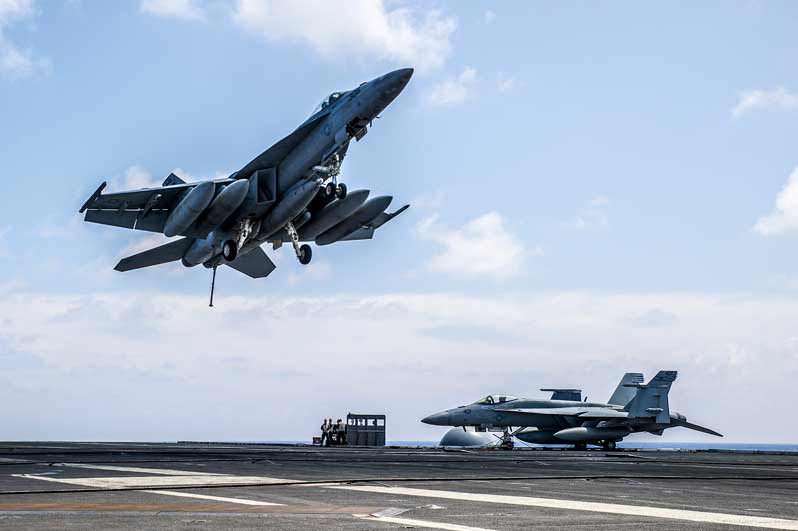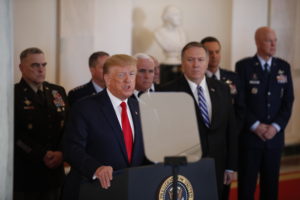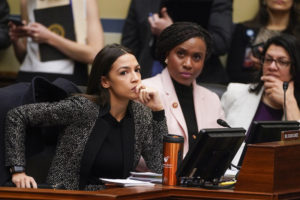Have We Gone to War Again?
I'd like to know whether the United States is at war with the Islamic State. U.S. Navy/MC3 Chris Cavagnaro
U.S. Navy/MC3 Chris Cavagnaro
U.S. Navy/MC3 Chris Cavagnaro
I’d like to know whether the United States is at war with the Islamic State. I’d like to know why — or why not. I’d like to know whether the goal of U.S. policy is to contain the jihadist militia or destroy it.
President Obama? Members of Congress? Please pay attention. I’m talking to you.
The barbarians who decapitated journalist James Foley — and who commit atrocities on a daily basis — control territory in both Iraq and Syria. I’d like to know why it makes sense to conduct airstrikes against Islamic State fighters on one side of a border that no longer exists but makes no sense to do so on the other side.
The answer may be that the U.S. military lacks intelligence about the enemy’s positions and movements — the Islamic State is the enemy, right? — inside Syria. This week, Obama authorized surveillance flights over Syrian territory to gather the needed information. Should we therefore assume that airstrikes there will soon begin?
I’d like to hear an honest discussion by our leaders about what we’re signing up for. Obama called the Islamic State a “cancer” and said the fight against it “won’t be easy and it won’t be quick.” To my ears, this suggests that the United States is making a long-term commitment and that time is on our side, not the Islamic State’s. I’d like to examine both assumptions.
Public support for extended U.S. military involvement in another Middle East war lies somewhere between negligible and nonexistent. An open-ended commitment would run counter to the thrust of Obama’s foreign policy from Day One — and indeed, he has limited the airstrikes and declared that he will “not allow the United States to be dragged back into another ground war in Iraq.”
If there are to be no boots on the ground, one wonders what kind of footwear the hundreds of U.S. military advisers newly sent to Iraq are sporting. One also wonders what the plan might be.
To say that “rooting out” the cancer that is the Islamic State “won’t be quick” implies that considerable time is necessary to accomplish certain tasks. What, exactly, might those tasks be? Is the idea to protect the Kurdish region in the Iraqi northeast, assume the Shiites in the south will defend themselves, degrade the Islamic State to the degree possible with airstrikes alone and wait for the Sunnis in the west to have another “awakening” and turn against this group of jihadists the way they turned against al-Qaeda?
If this is the idea, it seems awfully far-fetched. During the first “awakening,” there were tens of thousands of U.S. troops present who could eliminate al-Qaeda leaders and assets identified by Sunni tribal leaders. Now there are just a few hundred U.S. advisers in Iraq, and the Islamic State, by all accounts, is a far more capable and better-equipped military force than al-Qaeda ever was.
As much as we scoff at the notion of the Islamic State as an actual state, the group is managing to hold and administer huge swaths of territory and has found sources of continuing revenue — gray-market oil sales, kidnapping Europeans for ransom, widespread local extortion that the militants probably see as taxation.
Why wouldn’t time be on the side of the Islamic State as it digs in? Doesn’t the “rooting out” of the group become more difficult if it becomes more rooted day by day?
Defense Secretary Chuck Hagel said last week that the Islamic State is “beyond anything that we’ve seen.” He called it “as sophisticated and well-funded as any group that we have seen. They’re beyond just a terrorist group. They marry ideology, a sophistication of strategic and tactical military prowess. They are tremendously well-funded.”
Reality check: Most experts estimate that the group has about 15,000 fighters. This number may grow as recruits come in from abroad and local Sunnis are pressed into service, but this is not an unbeatable military force.
It seems foolish, however, to expect the Islamic State to defeat itself — by being excessively brutal, perhaps, or too greedy for new land. This brings me back to an earlier question: Is the aim of U.S. policy to contain the Islamic State or destroy it?
President Obama should tell the nation, in plain language, what he believes we must do. Congress should debate the issue rather than duck it. After all, no decision by our elected leaders is more fateful: This is war. As far as I can tell.
“We don’t have a strategy yet,” Obama said Thursday. Which is the one thing we already knew.
Eugene Robinson’s e-mail address is eugenerobinson(at)washpost.com.
© 2014, Washington Post Writers Group
Your support matters…Independent journalism is under threat and overshadowed by heavily funded mainstream media.
You can help level the playing field. Become a member.
Your tax-deductible contribution keeps us digging beneath the headlines to give you thought-provoking, investigative reporting and analysis that unearths what's really happening- without compromise.
Give today to support our courageous, independent journalists.


You need to be a supporter to comment.
There are currently no responses to this article.
Be the first to respond.